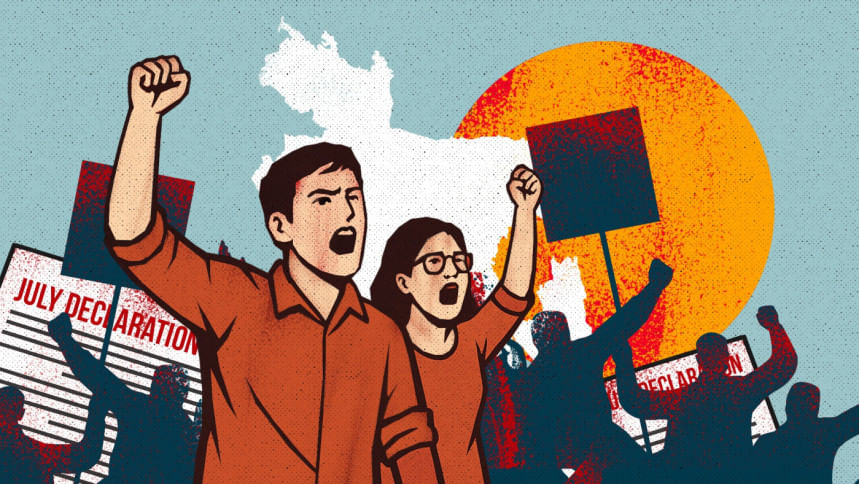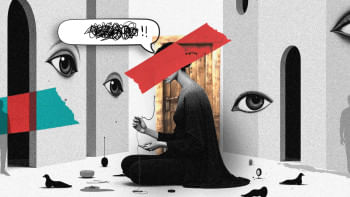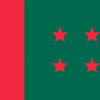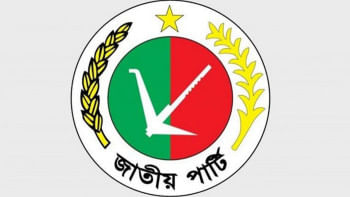July Declaration and the challenge of historical reckoning

It has been a year since the student-led mass uprising, and now there is a document—the July Declaration—to inscribe in history the experiences of July-August 2024. The relevant stakeholders deserve appreciation for finalising the document, particularly for how it traverses across times and remains grounded in the ideals of the rule of law, human rights, and non-discrimination. In a way, the document was meant to reckon with the past and pave the way for the future. However, there is much to discuss and debate about how far the declaration has been successful on both counts.
The declaration notes that the people of Bangladesh express the intention "to establish a democratic state […] through promised constitutional reforms brought about in the national parliament constituted through free and fair elections to be held at a reasonable time" (Para 25). It further says that "…the people of Bangladesh express their desire that the student-mass uprising of 2024 will get proper state and constitutional recognition and that the July Declaration will feature in the schedule of the reformed constitution as framed by the government formed through the next national election" (Para 27).
One may fail to recognise how the expression of people's desire could, in fact, be encapsulated, or whether consensus-building only among the political parties truly sufficed in gleaning the true expression of people's desire. While I, too, am interested in responses to these questions, the two assertions above seem to have at least dispelled some long-standing confusion regarding the process of constitutional reform. As it transpires, the national election will precede the "promised" constitutional reform, thereby deferring to the wisdom of an elected parliament. In this context, in terms of interpreting the future, the declaration has been somewhat useful.
In terms of reckoning with the past, however, it seems to have been amiss, and confuses more than it illuminates. Among others, illustrative is the contention that "due to the constitution-making procedure in 1972, the constitution's structural weakness […], the post-liberation Awami League government failed to realise the mass aspirations of the Liberation War […]" (Para 3). This assertion is speculative and, in one way or another, sits uneasily with the Fourth Amendment, which whittled down liberal democracy by bringing in one-party rule and also the militarised democratic deficit between 1975 and 1990. In fact, this assertion indemnifies the political actors and parties by unduly blaming an inanimate constitution. Interestingly, the declaration also notes the "misuse" of the 1972 constitution, perhaps in an attempt to take the edge off the earlier claims.
More importantly, its engagement with legal terminologies obscures significant historical contingencies and offsets political realities. Notably, even the most intense (and otherwise important) critiques appreciated the declaration for "it places 1971 in its rightful position in the nation's history and states that the fight was for a liberal democratic state" (as journalist David Bergman put it). I, however, think substantive thought and effort should have been put into how 1971 was described, particularly in terms of the terminologies used.
The declaration mentions the "nirbichar gonohotya" committed in 1971 in Para 1. With reference to crimes committed by the Awami League regime, it refers to the term "gonohotya" again in Para 23. Notably, the UN fact-finding report described the crimes committed by the regime in July-August 2024 as possible crimes against humanity. In a similar vein, the International Crimes Tribunal prosecutor brought charges of crimes against humanity against Sheikh Hasina, among others. The (somewhat legal) translation of "crimes against humanity" is "manobota-birodhi oporadh," whereas that of the term "genocide" is "gonohotya." Pertinent to note, the word gonohotya has by and large been used, albeit incorrectly, to imply mass killing (or gono[haare] hotya) in the context of July-August last year. In fact, considering the potential import of the term gonohotya bordering on mislabelling, many suggest that "genocide" ought to be translated as "jaatinidhon" if at all, and not as gonohotya. It was crucial for the declaration to have been mindful of this distinction. In fact, the drafters could have avoided potential mislabelling and conflation of crimes and atrocities either through the use of parenthetical clarification or simply by employing appropriate legal terminology.
The use of the word "nirbichar," or "indiscriminate," to qualify the 1971 gonohotya (Para 1 of the declaration) further adds to the confusion. While the word "indiscriminate" could be a fair and suitable qualifier in the context of mass killing, in my opinion, it does not qualify a genocide as such. For a document that arguably seeks to carry the history of the nation forward, the drafters of the declaration should have been mindful of this valuable nuance as well.
The conflation of legal terminologies, potential mislabelling of atrocities, and the general lack of nuance in this regard does a disservice, among others, to the 1971 victims of various acts of genocide, including mass rapes and forced impregnation. All those crimes were perpetrated as actus reus of the genocide carried out by the Pakistan Army and their native collaborators. Notably, in this context, Bangladesh's Proclamation of Independence had referred to the "numerous acts of genocide" and "unprecedented tortures" committed by the Pakistani authorities. Perhaps the drafters of the July Declaration should have perused the Proclamation, at least while crafting its first paragraph.
Bangladesh has not yet been able to secure international recognition of the 1971 gonohotya (not in the sense of mass killing, but as genocide). For this, successive governments are to blame, and so are the powers at the helm of world politics. I believe this is one of the reasons why people, particularly the powerful, sometimes go on to conveniently devalue our Liberation War. Similarly, there already are, and will continue to be, factions within us who would choose to unsee or deregister July-August 2024. State-sanctioned atrocities perpetrated in July-August last year were outrageous, among other reasons, because our very statehood emerged from the spiral wounds of the 1971 genocide and war crimes. Indeed, the July Declaration should have seized the opportunity to shed the right light on the 1971 genocide, play its part in the fight for recognition, and pave the way for a political future that mindfully reckons with past atrocities, including those of July-August 2024.
The July Declaration was expected to historicise the past, enact the present, and interpret the future—all with linguistic prowess. Drafters were expected not to modulate but to neutrally explain the historical subtleties and contingencies that make up our lived political reality. Indeed, I expected significantly more from the document given its overarching context and the bloodied histories we are steeped in.
Psymhe Wadud teaches law at the University of Dhaka and is in charge of Law & Our Rights at The Daily Star.
Views expressed in this article are the author's own.
Follow The Daily Star Opinion on Facebook for the latest opinions, commentaries and analyses by experts and professionals. To contribute your article or letter to The Daily Star Opinion, see our guidelines for submission.

 For all latest news, follow The Daily Star's Google News channel.
For all latest news, follow The Daily Star's Google News channel. 










Comments